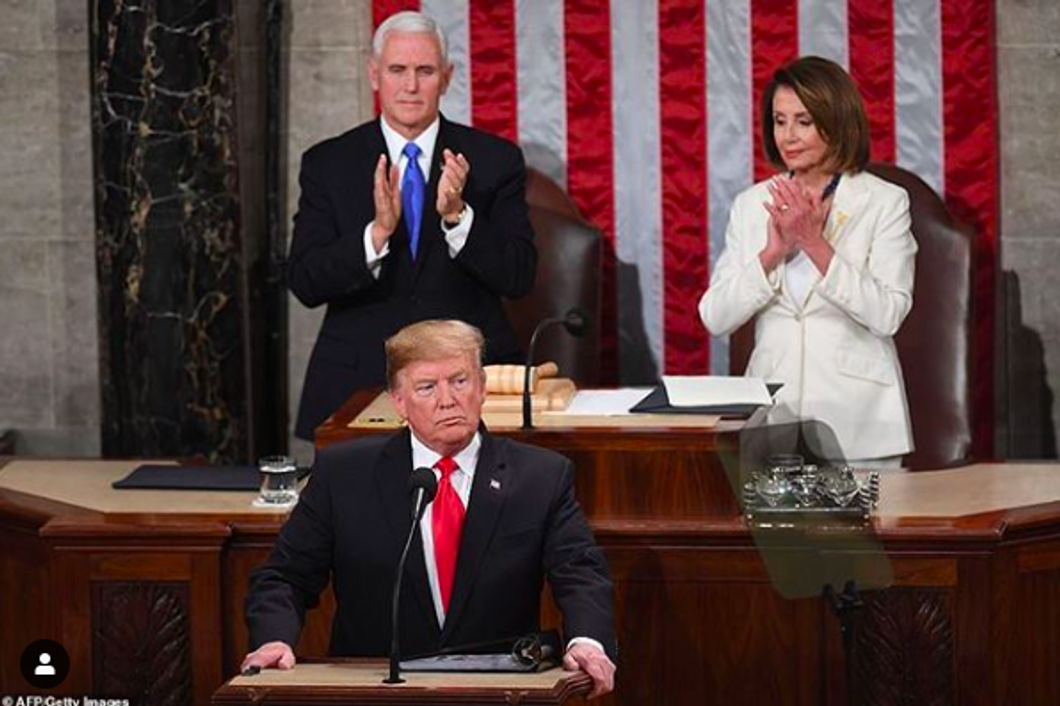On February 5, 2019, President Donald Trump gave his State of the Union Address. The room was filled with appraisal and opposition alike, making for a night of both controversies as well as a call for compromise.
The guests who attended made the room filled with people who were either honored by or negatively affected by Trump. The president honored WW2 veterans, a survivor of the Tree of Life Synagogue shooting, and a former inmate who was released from prison due to Trump's First Step Act, among others. However, guests such as Trisha Pesiri-Dybvik, who is an air traffic controller who not only lost her home in the California fires that occurred this year but also missed paychecks due to the government shutdown, made a statement that just like there were people in the audience who Trump has honored and helped, there were also people who his actions in his presidency have hurt.
As for the speech itself, the president started out on a note of bipartisanship, which seemed to last in the speech up until he took a shot at the Democratic Party by saying that if they wanted "peace and prosperity, they could not carry on partisan investigations." During the speech the president also reiterated his stance on the border, insisting that he was still in favor of the wall, despite opposition from many members of Congress.
Other issues covered in the Address included the topic of US troops in Syria and Afghanistan, with Trump saying that he wants to pull the troops out. This issue proves to be a large area of controversy considering multiple government officials of both parties are worried about leaving a vacuum in the Middle East if we were to pull out too quickly.
Also noticeable during the televised event was the stance that was made by the women of the Democratic Party. Many of the female members of Congress, including Nancy Pelosi, wore white to show unity and female empowerment. Trump even called out and praised the record number of women in Congress, proving that even when our political system seems to be extremely divided, progressiveness still finds its way to move politics, and those who make up the faces of politics, forward.














